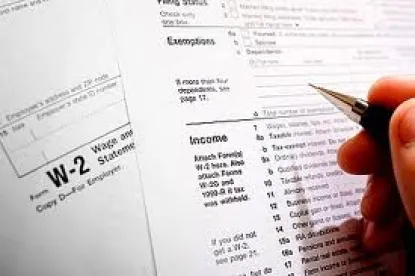The Social Security Administration (SSA) has begun issuing "no-match" letters to employers informing them of employees whose Social Security numbers on W-2 forms do not match SSA records.
A no-match letter is an SSA employer correction request notice that cannot on its own be a basis for taking an adverse action against an employee, as the letter so indicates, but it should also not be ignored by an employer.
The SSA makes it clear that a no-match letter makes no statement about the worker’s immigration status. However, failure to act by an employer could create a basis for the Department of Homeland Security to argue that it is evidence of constructive knowledge of an unauthorized employee.
The SSA announced in the summer of 2018 that it would resume issuing no-match notices to employers, a practice that was suspended in 2012. In March, the SSA began mailing notifications to employers warning them that some of their employees’ Social Security numbers (SSNs) submitted on wage and tax statement (Form W-2) do not match SSA records.
The SSA lists a variety of reasons for discrepancies between the employer-provided information and SSA records, including typographical errors, unreported name changes, and inaccurate or incomplete employer records.
No-match letters trigger an obligation for the employer to take action and address the discrepancy within 60 days of notification. If the issue is the employer’s records, the employer must correct any errors it made in the data submitted to the SSA and resubmit corrected data.
If the employment records match the submission, the employer must notify the employee to check his/her Social Security card and inform the employer of any difference in name or SSN between the employment records and the card. If the employment records are incorrect, the employer must correct its records and resubmit the corrected data.
However, if the employment record and the employee's Social Security card match but are different from the information from the SSA, the employer must ask the employee to check with a local SSA office to resolve the issue. The employer must give the employee a reasonable time period to correct the discrepancy and resolve it with the SSA.
Once the employee has contacted the SSA Office, he/she should inform the employer of any changes. The employer must follow up with the employee to confirm that the discrepancy was corrected and ensure that the correct data is resubmitted to the SSA.
The no-match letter alone does not provide a legal basis for an employer to take adverse employment action against an employee or re-verify the employee’s employment authorization. Any employer that uses no-match notification to take inappropriate adverse action against a worker may violate state or federal law.
Nevertheless, notice of an employee with an invalid SSN could create legal implications for the employer. If the employee is unable to provide a valid SSN or does not make an effort to correct the discrepancy within a reasonable amount of time, an employer must terminate the employee.




 />i
/>i

